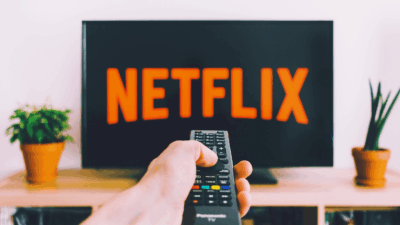A “Squid Game” Stock Jumped 24% on Renewal of the Hit Netflix Show

Sign up for smart news, insights, and analysis on the biggest financial stories of the day.
On the wildly popular Netflix survival drama Squid Game, characters risk life and limb in a series of violent trials overseen by an enigmatic syndicate.
On Monday, the struggling streaming giant announced a second season of the show — ironically, though not surprisingly, the prospect of more death-filled mayhem is breathing life into one stock closely aligned with the series. Dramatic twist: it’s not Netflix.
King of the K-Wave
South Korea is a heated battleground for streaming services for two reasons. First, South Koreans love locally produced content — within Korea, 70% of premium video consumption is of domestic shows, while US content captures just 14%, according to research firm Media Partners Asia. Second, the rest of the world loves Korean content, too — see boy band BTS, the world’s best-selling musical act for two years running, and 2020 Oscar Best Picture winner Parasite.
Squid Game, which cost Netflix $21.4 million to produce, achieved international phenomenon status upon release last September. Internal Netflix documents seen by Bloomberg suggest the show, viewed by over 142 million households, generated $890 million in “impact value” — a metric Netflix uses to calculate how much a show was worth to the company. So renewing the series seems obvious, the biggest beneficiary less so:
- Shares in Bucket Studio, which holds a stake in the agency that represents Squid Game star Lee Jung-jae, rose 24% in Seoul on Monday, as Asian stocks were hit by huge selloffs — South Korea’s Kospi index fell 3.3%.
- Netflix, meanwhile, tumbled almost 7% back home on the NYSE.
Netflix is South Korea’s leading streamer, with 8.4 million subscribers as of March, more than double second-place Wave’s 3.4 million. Disney+ has 1.2 million subscribers and has launched seven Korean shows, while Apple, Paramount, and HBO Max are all relatively new entrants.
Reversal of Fortune: Netflix, already down 70% this year, projects to lose 2 million subscribers in the second quarter, meaning its next financial statement could feature more casualties than Squid Game.











